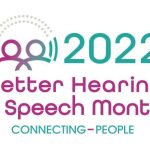Hearing loss is one of those things we can probably expect to experience as we age. While about a third of those aged 65–74 have hearing loss, almost half of those 75 and up have it. As people age into their 90s, close to 60% have hearing issues.
For centuries—or perhaps even millennia—age-related hearing loss, or “presbycusis,” has been thought to be an unfortunate and annoying part of getting older, but mostly benign. Research in recent decades, however, points more and more to hearing loss as a sort of catalyst for a whole host of negative health outcomes. It is even understood now that it is common to go through a kind of grieving process for the loss of our ability to hear well.
Hearing loss does not have to upend our lives, but treatment is key to avoiding that outcome. Even mild hearing loss brings with it some concerning changes that we do not wish to see occur, so as soon as a hearing care professional recommends hearing aids for your hearing loss, it is best to start wearing them.
Mild Hearing Loss
Mild hearing loss is defined as something between 20–40 dBHL (decibels hearing level) of hearing loss. When we hear “mild,” we think it’s not that bad. It’s true that it is the least invasive degree of hearing loss, but that doesn’t mean that no action is required to treat it.
Mild hearing loss makes it much more difficult to understand speech when background sound is present. This could mean anything from being out at a restaurant to having three houseguests instead of one. In situations like these, it will be much more difficult to pick up on desired sound—like the speech from one specific person—and you can expect early fatigue and frustration.
People with mild hearing loss tend to start spending less time outside and in social situations. When we can’t hear, social time is less enjoyable and outdoor time may seem disorienting. In starting to decline invitations, we slowly begin the process of withdrawal from friends and family. Over time, this is shown to lead to depression, loneliness, and social isolation.
People with mild hearing loss also self-report having more memory issues. This may be because the auditory cortex, where speech is interpreted out of sound, is so close to the brain’s region for short-term memory. Normally, speech is shunted directly to short-term memory upon being understood, but when we have to piece an understanding together from context clues and repetition, we are less likely to recall what we hear.
As Hearing Loss Progresses
Over time, changes in the brain start to take place as hearing loss relieves the auditory cortex from duty. As less sound comes in to be understood, the auditory cortex will actually atrophy. It’s not that brain cells die, but the grey matter between them begins to dissipate and the structure sort of collapses. This means that even when you start to wear hearing aids and can hear speech clearly, you won’t be able to understand it. You’ll be able to regain this ability over time, but not without some effort.
This process may also be tied to the link between hearing loss and cognitive decline and dementia. Mild hearing loss doubles a person’s risk for Alzheimer’s. Moderate hearing loss increases the risk threefold, and severe hearing loss makes us five times more likely to experience an earlier onset of cognitive decline and dementia.
Those with untreated hearing loss are 32% more likely to be readmitted to the hospital within 30 days of being discharged. They tend to experience not only mental but also physical decline faster than those with normal hearing or who wear hearing aids. On average, those with hearing loss between the ages of 60–69 spend 34 fewer minutes being physically active. The greater the severity of hearing loss, the less physical activity.
Hearing Aids Can Help
Hearing loss is not all doom and gloom! In fact, those who get hearing aids tend to report swelling feelings of optimism and general positivity. There is always an adjustment period, but the minor discomfort some people experience when they start wearing hearing aids is far outweighed by the ways in which hearing aids bring them back into the fold of life. When asked after one year of wearing them, about 95% of people say they are glad they got hearing aids!
If you or a loved one is having hearing issues, make an appointment for a hearing test today and start treating hearing loss immediately! The less time you spend living with untreated hearing loss, the fewer complications your hearing loss will be able to engender.






